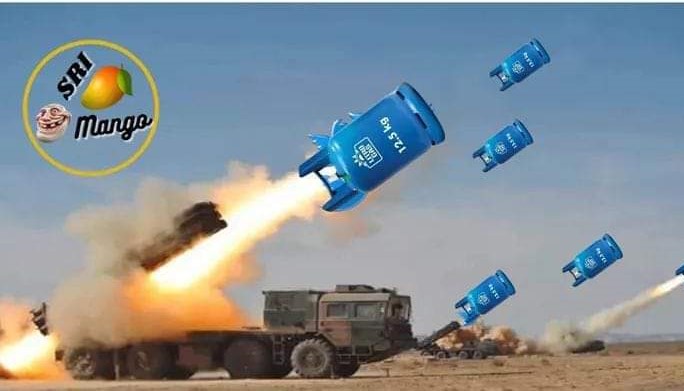Sri Lanka is investigating a sharp rise in kitchen explosions caused by cooking gas that have reportedly killed at least one person and wounded dozens of others, parliament heard Monday (Nov 29).
The island is in the grip of an economic crisis with serious shortages of fossil fuels and other essential goods because of depleted foreign currency reserves.
Opposition lawmakers have blamed increased concentrations of propane in liquified petroleum gas (LPG) cylinders used for cooking, relative to the more expensive butane.
The government is now probing LPG supplies after a dozen blasts linked to kitchen stoves, consumer affairs minister Lasantha Alagiyawanna told parliament.
“During a short space of time there has been a very sharp increase in gas accidents,” he said.
“We don’t want to have 10 to 15 homes blowing up daily, so I have ordered an investigation.”
An official in Sri Lanka’s consumer affairs agency, who asked not to be named, told AFP that higher concentrations of propane were increasing pressure on LPG cylinders, causing leaks that led to explosive fires.
State-run gas agency Litro has denied changing the proportion of butane and propane in domestic gas cylinders, instead blaming poorly maintained stoves and faulty pipes.
Local media reports said a 19-year-old woman was killed after a gas cylinder leaked and exploded in Sri Lanka’s east last week.
Police have denied the death was due to a gas leak.
Consumers have faced serious LPG shortages in recent months with authorities struggling to find foreign exchange to finance gas and crude oil imports.
Sri Lanka’s only oil refinery shut for the first time in its 52-year history this month because it could not source dollars to import crude.
The island’s economy shrank last year as the pandemic took hold and tourism nosedived.
A resulting foreign exchange shortage prompted authorities to shore up Sri Lanka’s trade imbalance with a broad ban on imports, including some food and agricultural products.
That decision eventually sparked food shortages, with supermarkets rationing rice and the price of some staples doubling earlier this month.
Source: AFP


